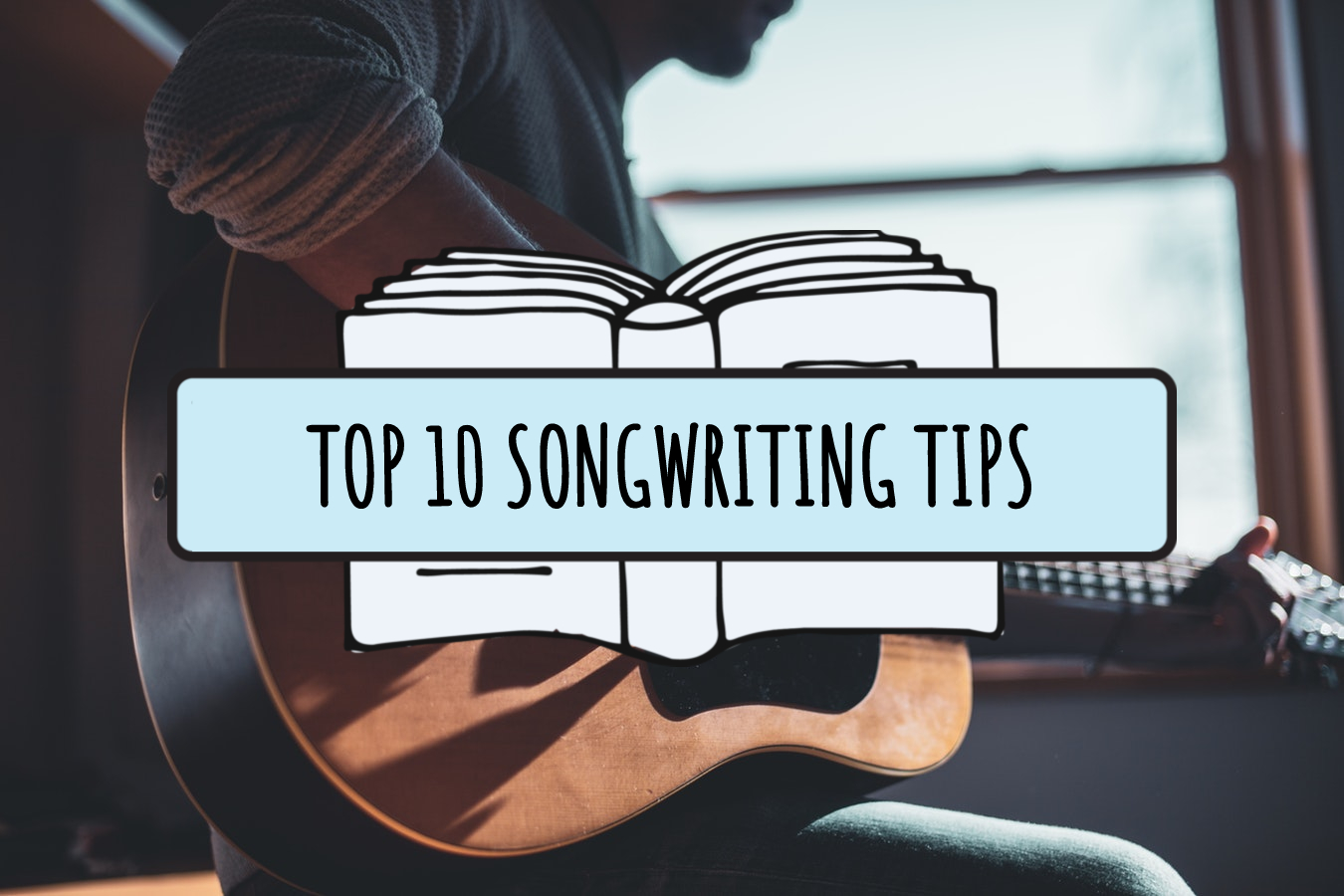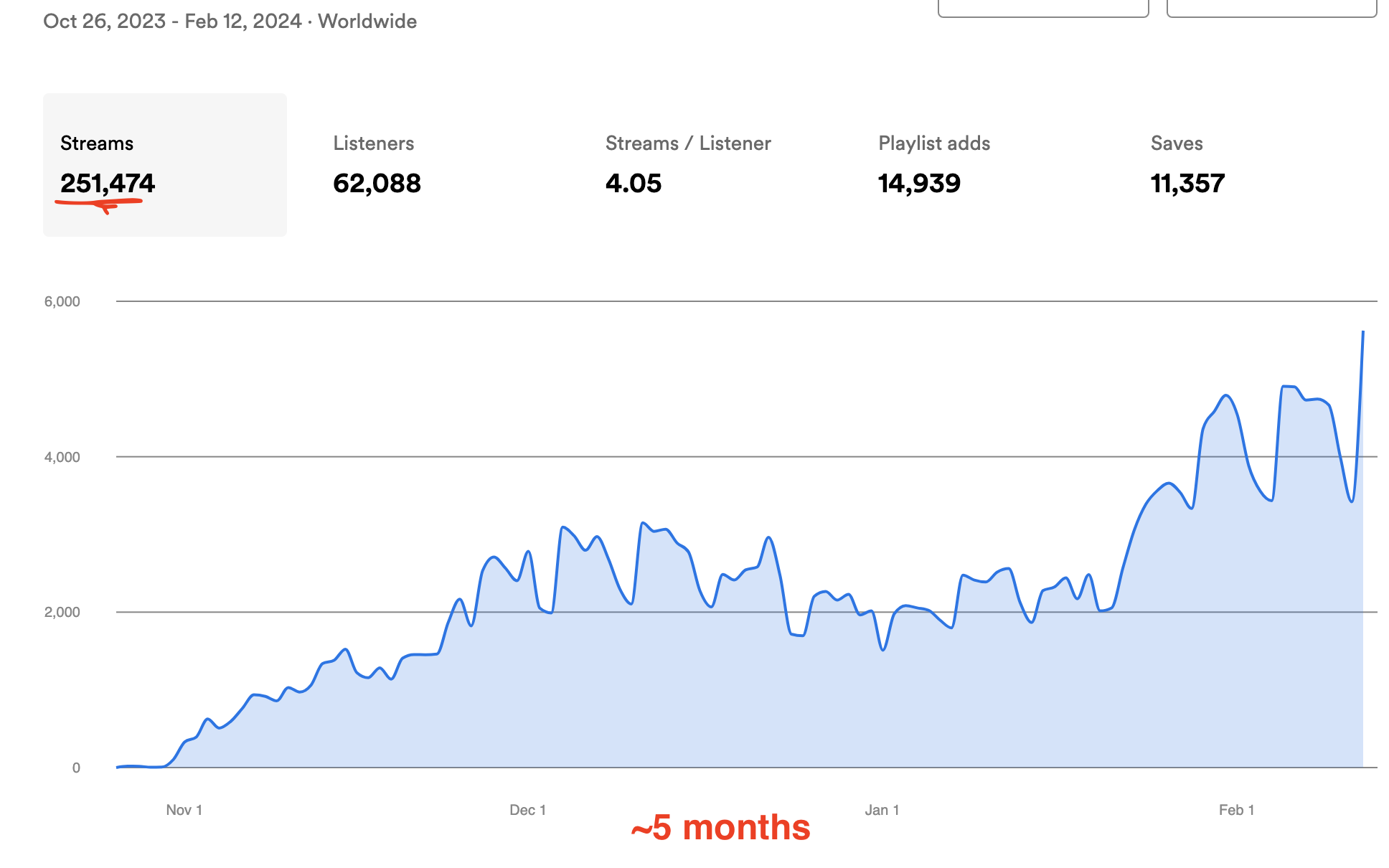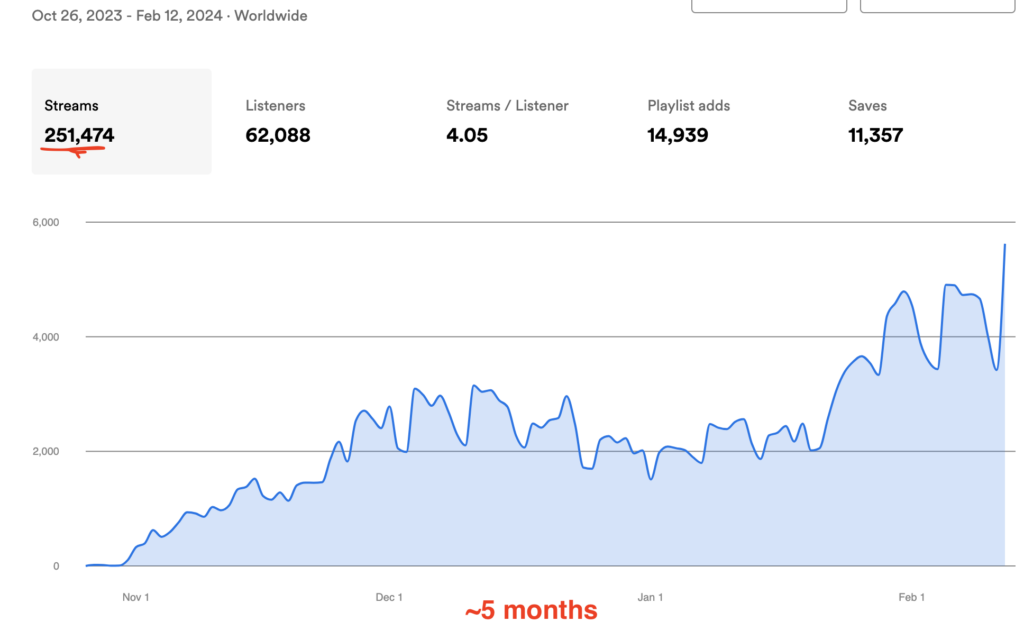Two truths and a lie:
Two Story Melody exists to let artists tell the stories behind their songs.
Two Story Melody exists to help songwriters learn from other songwriters.
Two Story Melody doesn’t exist. It’s been in your head this whole time.
I’ll give you a second to make your guesses.
But let’s just assume for a second that Two Story Melody is real. That means there’s a solid chance that we’ve been interviewing artists for around two years, and in every interview, we ask them something like:
What advice would you give to other songwriters?
And if we’ve really been doing that for so long, then we’ve probably gotten a lot of really insightful answers (and, most likely, some kinda disappointingly lame answers too, but we’ll ignore those).
The point is, unless you’ve been reading every article since our supposed beginning, you might’ve missed a lot of amazing tips from some of the best songwriters in the world. And unless you have the free time to go back and read all of those supposed tips and compile a list of the best ones (I mean, who would do that?), you’ll probably never get to hear them.
So I just decided to save you the trouble and compile a list for you.
Have you locked in your guess?
Number three was the lie. Here’s a list of the top songwriting tips from Two Story Melody artists.
1. Just write.
We’ll start with the obvious; to write songs, you have to write songs.
A few weeks ago, last time I talked to Maxx, he said he had a bunch of new material on the way, because he’d been writing a lot. That was exciting to hear as a fan, and even more inspiring to hear as a songwriter. He makes music that’s incredibly thoughtful and poetic; his songs are four-minute glimpses of eternal questions and truths, so much so that I could spend days listening to each one. But he still keeps writing new ones, and I think I know why.
A songwriter is never satisfied, because there’s always new ground to cover, and new ways to cover it. There’s only one way out of writers block, and that’s
through it. A songwriter’s duty to the world to dig through the dirt of less-than-perfect songs, in hopes that the
next song will be the gold.
2. Don’t belittle yourself.
Ethan writes good music, so if he gives songwriting advice, I’m going to listen to him.
While humility is always the best approach to creating art, there is a healthy place for confidence, especially if that confidence is born out of a sense of responsibility. If you’re a songwriter, you’ve been given a gift, and doubting yourself will only lead to suppression of it.
Push through the bad songs, and more importantly, continue to be awed by the good songs, whether or not you’re the one who writes them. Don’t lose confidence; songwriting is an enigmatic thing, and determination will yield good songs in time.
3. Don’t forget about the input-to-output ratio.
Megan Davies graduated from the Belmont University songwriting program a few years ahead of me. If there’s one thing the grammy-winning professors hammer home, it’s that you need to be reading and listening to music to write good songs.
Reading can be boring. We all know that. But it expands your use of language, and every book is a little world with its own bits of inspiration for your next great song. And when it comes to listening to music, if you want to be a great writer, you need to expand your genre horizons until they break.
If you don’t like country music, listen to a lot of it to figure out why. I guarantee you’ll find something you can use to better your own craft.
4. Don’t settle for your first draft.
Rob is a creative force when it comes to songwriting, and that’s because he understands the importance of revision.
I love to write songs in one sitting, because it feels satisfying to get everything out right away and not have to deal with it again. But every first draft in the history of music has had dummy lines (lyrics that kind of suck but you keep anyway because you already wrote the song), and the best songwriters never settle for those.
Analyze your songs. Trim the parts you don’t need, make sure the melody serves the lyrics, and see to it that every word counts, because the world doesn’t need any more half-baked songs.
5. Don’t try to improve something to death.
I swear this isn’t the opposite of what I just said.
Garden City is a songwriting duo that relies on rawness and honesty to drive their project. They are constantly playing off each other’s work to perfect it, but they know there’s beauty in a spontaneous creative burst.
Revision is important, but not when it suffocates the initial spark of inspiration. The first idea for a song is usually what sticks, whether it’s an earworm chorus melody, a perfectly-written lyric, or a great riff, and trying to perfect what is inherently subjective is destined to be an ever uphill battle.
Learn to let go of your songs when they’ve grown, however imperfect they are.
6. Listen to everyone’s opinion, but don’t take everything to heart.
In my opinion, Valley is the best indie-pop band out there. They’ve made their music, though, in spite of the fact that they’re just a group of four kids. In a well-treaded genre of sub-par bands, they’ve staked their territory by being open to change, yet confident in themselves.
I find that when I play a new song for a room of ten people, I’ll hear ten different opinions. Like I said, with something as subjective as music, there’s a lot of gray area between what is good for a song and what is bad for it. Some people will hate my writing, some people will love it, and somewhere in both camps are people who want to help me hone my craft. Ultimately though, it comes down to the writer to make their own cognitive distinction between what they think is right and wrong.
Listening to your audience is can be helpful, but if you’re not happy with the music you make, your problem may be related to taking others’ input too seriously.
7. Lyrics and melody should be inseparable.
Noooow we’re getting onto the mystery of what makes music good.
There’s a reason everybody listens to music, and not many people go to poetry readings; melody adds depth to the two-dimensional plain of language.
And at the same time, complex language is something humans have that distinguishes us from the rest of the planet. Words give meaning to thoughts and feelings, and there’s undeniable beauty in being able to share them skillfully.
Some songwriters claim to be just melody or lyric writers, and while everybody has their strengths, good songwriters need to have both weapons in their arsenal. Language has a natural flow that spurs on rhythm, as well as a natural meaning that induces the tension and relief of melody. To ignore their dependance on each other would be a disservice to each element.
And if you want a good example of how to make sure great melodies match up with worthwhile lyrics, start with Carousel Rogues.
8. Begin from a place of forgiveness.
If I’m being honest, I just included this one because I was so intrigued by it. I think I know what Abner was getting at. Let me explain.
While not every song is going to have a literal apology (
sometimes it will, and it’s a bop), I think all the best ones share something in common: honesty.
Eighty Ninety unabashedly writes sad love songs, and they’re as sentimental as they are heartbreaking, as heartbreaking as they are honest. They painfully capture the feelings of regret that come with looking back on lost love, and more importantly, the feelings of self-doubt: the
I could’ve done better, and if I had, you’d still be around feelings. Starting from that place, they examine the reasons for their loss, and begin to claw their way towards forgiveness for whoever’s fault it was, even if it’s their own.
Intense, but clearly it’s working.
If you have somebody you need to forgive, try to do it in a song, as honestly as you can. It’ll definitely be hard, but it’ll also be therapeutic, and might result in one of your best songs.
9. Steal cleverly.
I laughed when I got to this part of Martha’s interview the first time. It’s too true.
Unless you really like writing southern Indian music, I have some bad news for you: we only have 12 chromatic notes to work with, and (if you write something that isn’t jazz) probably only 4 or 5 diatonic chords. There’s probably going to be some melodic and harmonic overlap between your song and someone else’s.
To make matters worse, even though language is a massive arena, people tend to fall into vocabulary ruts based upon their environments. The odds aren’t great that every line in your song will be 100% groundbreaking.
But that doesn’t mean you can’t use those melodies, chords, and lyrics; it just means you have to do it tastefully. Art exists partially to give rise to other art, and even the Beatles ripped off their heroes from time to time. When it comes down to it, if you notice a melody or line is clearly stolen from another person’s work, change it slightly, and get away with it. And keep strumming that 1-5-6m-4 progression until your fingers fall off.
10. Pay attention to those “Colonoscopy” moments.
Okay, he didn’t say those words exactly.
What he did say was that sometimes, after hours of trying to write a song in the world’s most perfect, inspiring writing room, sometimes the best songs come when you’re “en route to a colonoscopy.”
If that quote doesn’t make you want to listen to Glom, I don’t know what will.
I can’t say I’ve ever been en route to a colonoscopy, but I have had song ideas come at the least convenient times. I used to ignore those moments and take them for granted, but I’ve since learned that they’re valuable, few-and-far-between sparks of creativity that absolutely
need to be documented on an iPhone voice memo, or notepad, or into the dirt with a stick. Anything to get the idea down.
11. (BONUS) Don’t write about food.
While scouring our archive for the best tips, I found this one, and it was too good to pass up, and too absurd to put in the top ten.
It’s true, and not just about food. Sometimes songwriters pull me in close during the first two and a half minutes of a song, and then they’ll suddenly drop a lyric that throws me out of the moment head-first, leaving me never wanting to listen to it again. All because of one line.
I’m not naming any names, but a popular songwriter (who I otherwise am unashamed to call one of the best songwriters in the world) did this with the entire bridge of her 2014 hit with a title that rhymes with “Rake it Off.” Sometimes a great song will have a moment that just makes a person cringe, and that song’s audience is eternally short one listener.
I guess for Jared, it must’ve happened with a line about food. It makes sense; there’s not really a place in a deep, thoughtful lyric for “chicken wings.” Whoever hurt you, Jared, I’m sorry. I feel your pain every time I listen through the album that’s title is one more than 1988.
Thanks for reading. For more insight into songwriting, sign up for our email list. We promise we won’t spam you. Go forth and write songs.








